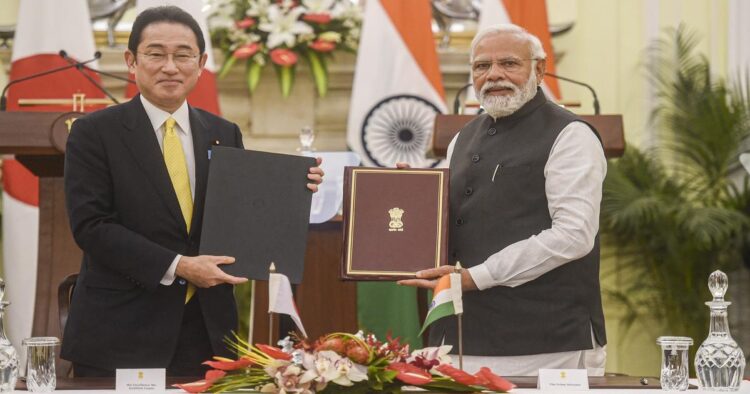External Affairs Minister S. Jaishankar announced a significant development in economic relations between India and Japan, with an ambitious investment target of Yen 5 trillion (USD 42 billion) by 2027. Speaking at a press briefing in Tokyo, Jaishankar emphasized the progress made in India-Japan ties over the past decade under Prime Minister Narendra Modi’s leadership.
Jaishankar highlighted the impressive growth in infrastructure and education in India over the last ten years. He mentioned that India has built, on average, eight new airports and 1.5 to 2 new metro systems in various cities every year. Additionally, the country has constructed 28 kilometers of highways and laid eight kilometers of railway tracks daily.
The number of educational institutions has doubled, contributing to the establishment of 1,600 global capability centers across India, generating exports worth over USD 100 billion annually.
#WATCH | Tokyo, Japan: External Affairs Minister Dr S Jaishankar says "There are 1,400 Japanese businesses going on in India. We would like to see that number grow, and we have an investment target of ¥5 trillion that is $42 billion by 2027 in India. Japanese companies in many… pic.twitter.com/6wcPMpDz8G
— ANI (@ANI) July 29, 2024
Strengthening India-Japan Relations
Jaishankar, a veteran in India-Japan relations for three decades, noted the significant advancements since 2014. He recalled his involvement with the Quad, an alliance including India, Japan, Australia, and the United States, which started in 2007 and gained momentum in 2017. He emphasized the importance of the relationship, stating that it has come a long way in the past 25 years, particularly in recent years.
Investment and Business Growth
The minister pointed out that there are currently 1,400 Japanese businesses operating in India, and the country aims to increase this number.
The investment target of Yen 5 trillion by 2027 reflects Japan’s confidence in India’s growing market. Jaishankar credited Japanese companies with sparking India’s automobile revolution and contributing to the proliferation of metro systems. He highlighted ongoing projects, such as a high-speed railway, and expressed optimism about future collaborations in semiconductors, artificial intelligence, electric vehicles, and green energy.
Jaishankar emphasized India’s capabilities in various advanced sectors, including semiconductors, electric vehicles, space, drones, and green energy. He stated that India is becoming not only a more attractive economic partner but also a more capable one. The country’s ambition and growing ability to become a global partner for advanced economies were highlighted as key factors driving these collaborations.
Upcoming Quad Summit in India
In a joint statement after the Quad foreign ministers’ meeting in Tokyo, it was announced that India will host the next Quad Leaders’ Summit later this year. The statement reaffirmed the commitment of the Quad countries—Australia, India, Japan, and the United States—to strengthen their cooperation. The United States will host the next Quad Foreign Ministers’ meeting in 2025.
Jaishankar’s statements underscored the dynamic changes underway in India and the growing importance of India-Japan economic ties. With ambitious investment targets and a focus on advanced technologies, the relationship between the two countries is poised for significant growth in the coming years.
The upcoming Quad Summit in India further highlights India’s strategic role in the region and its increasing importance on the global stage.

















Comments